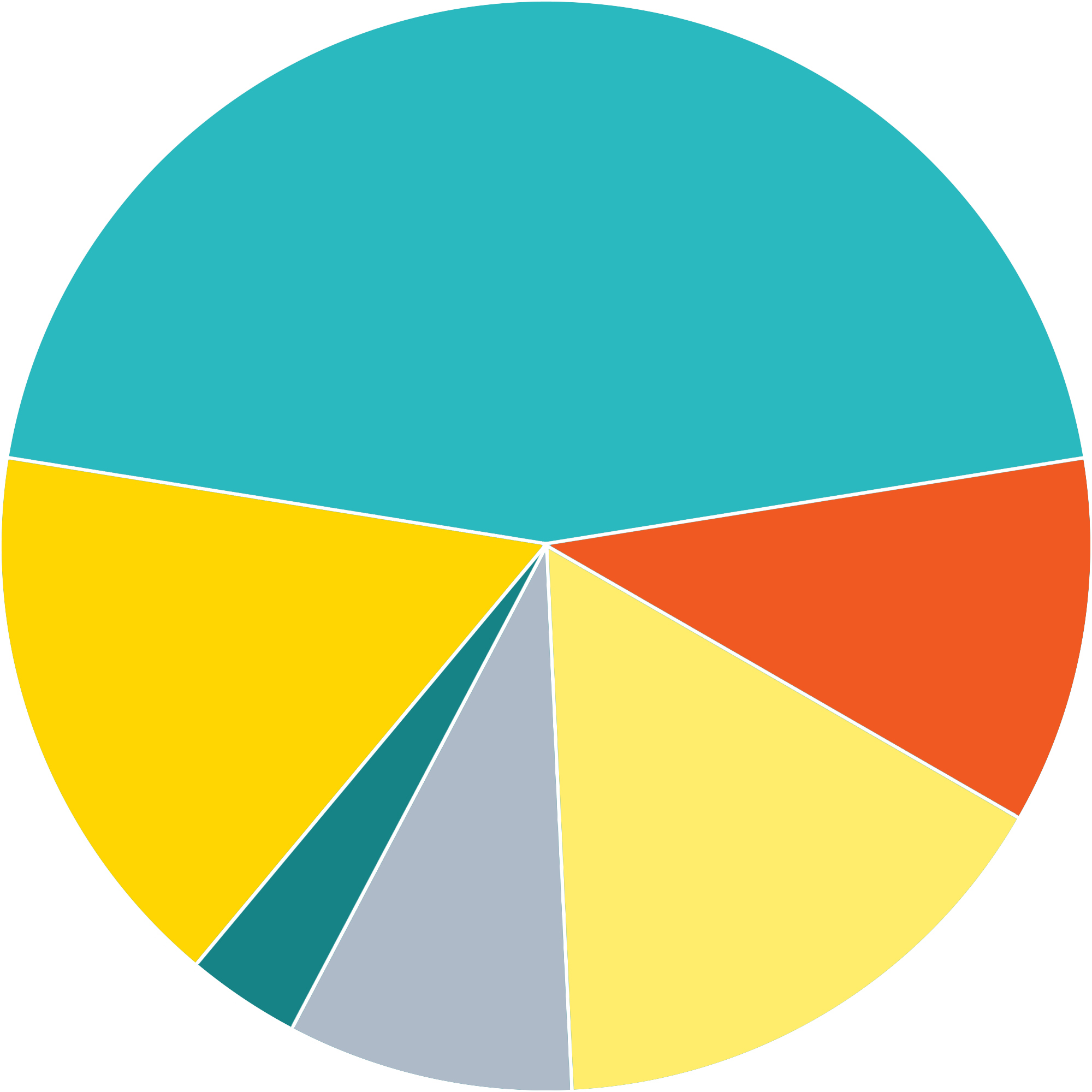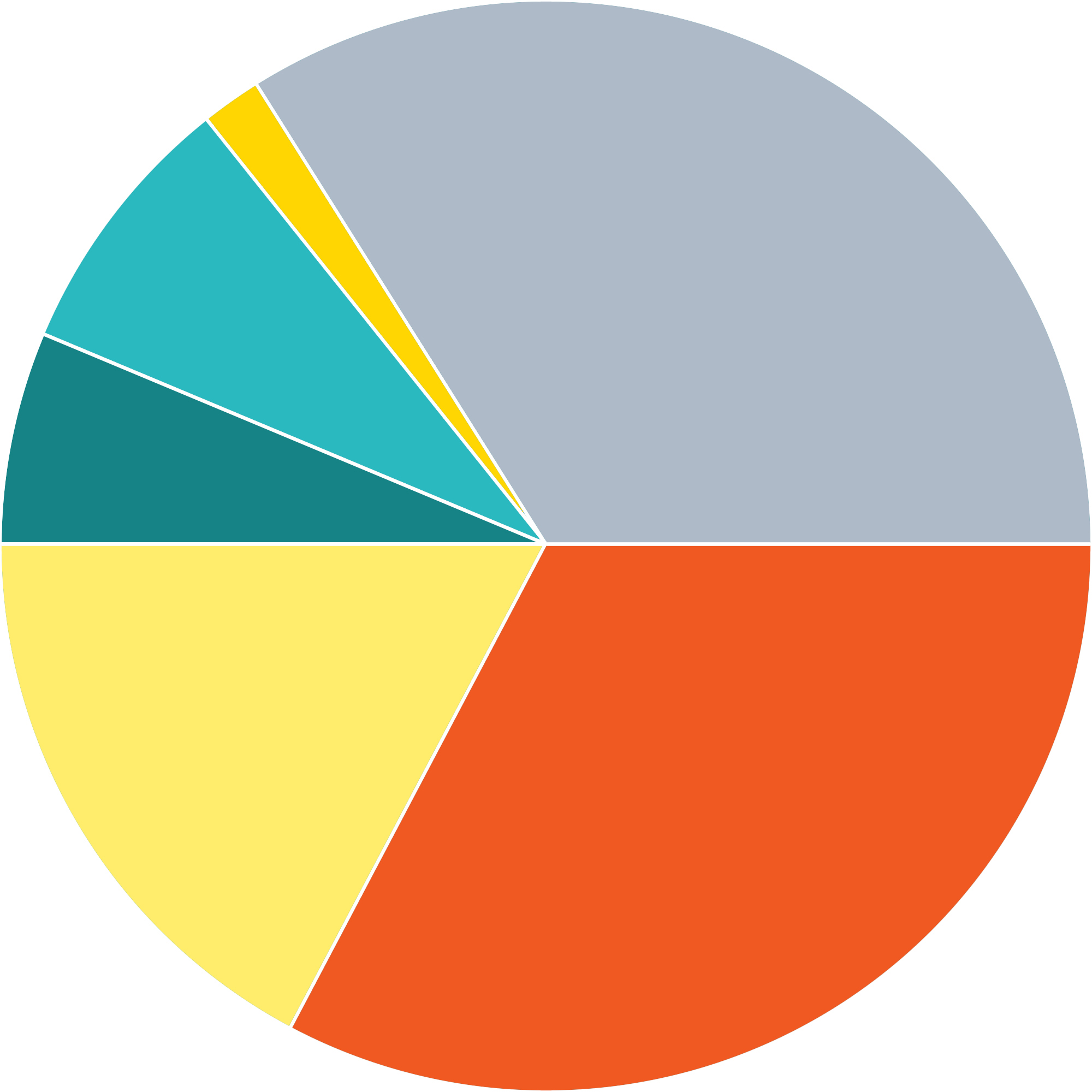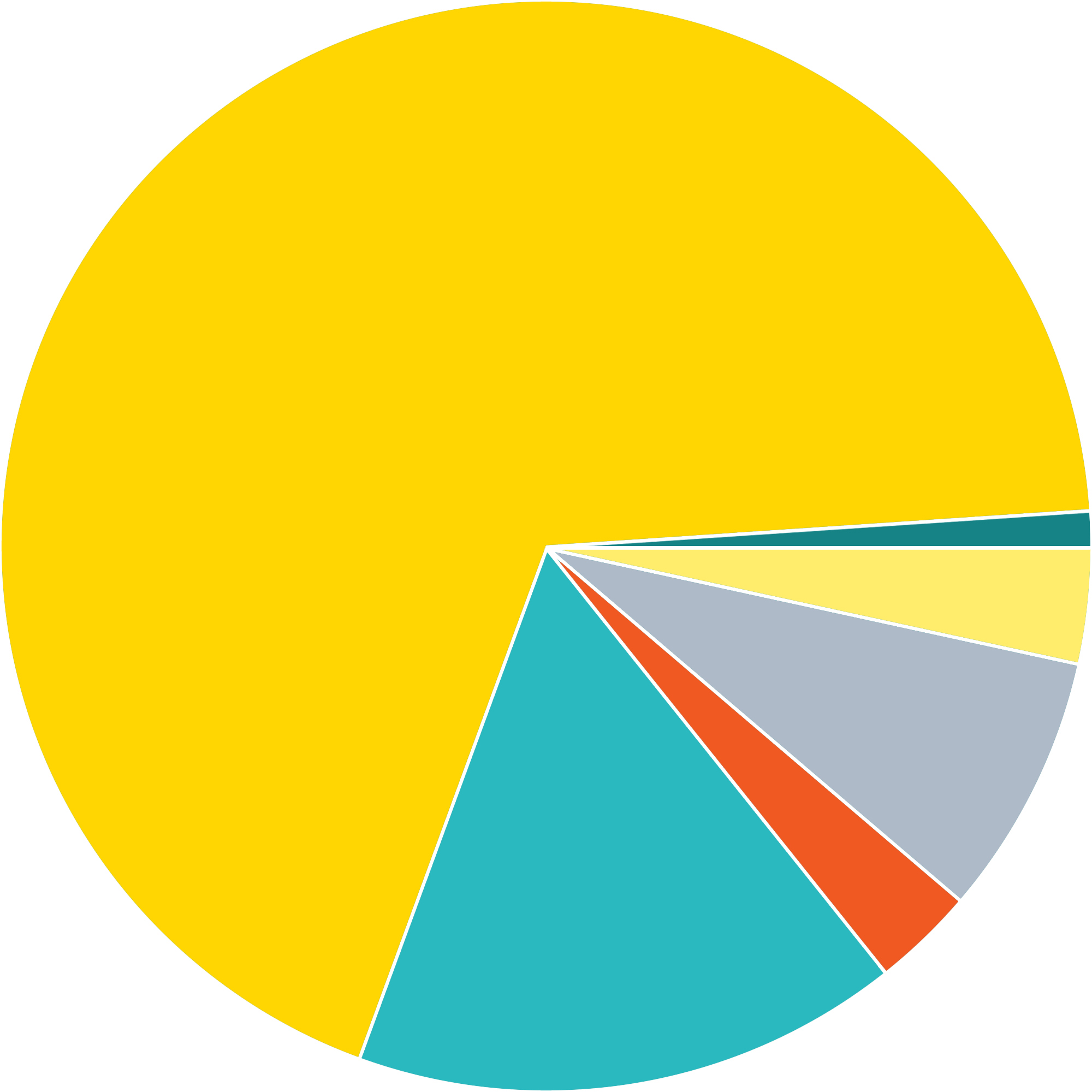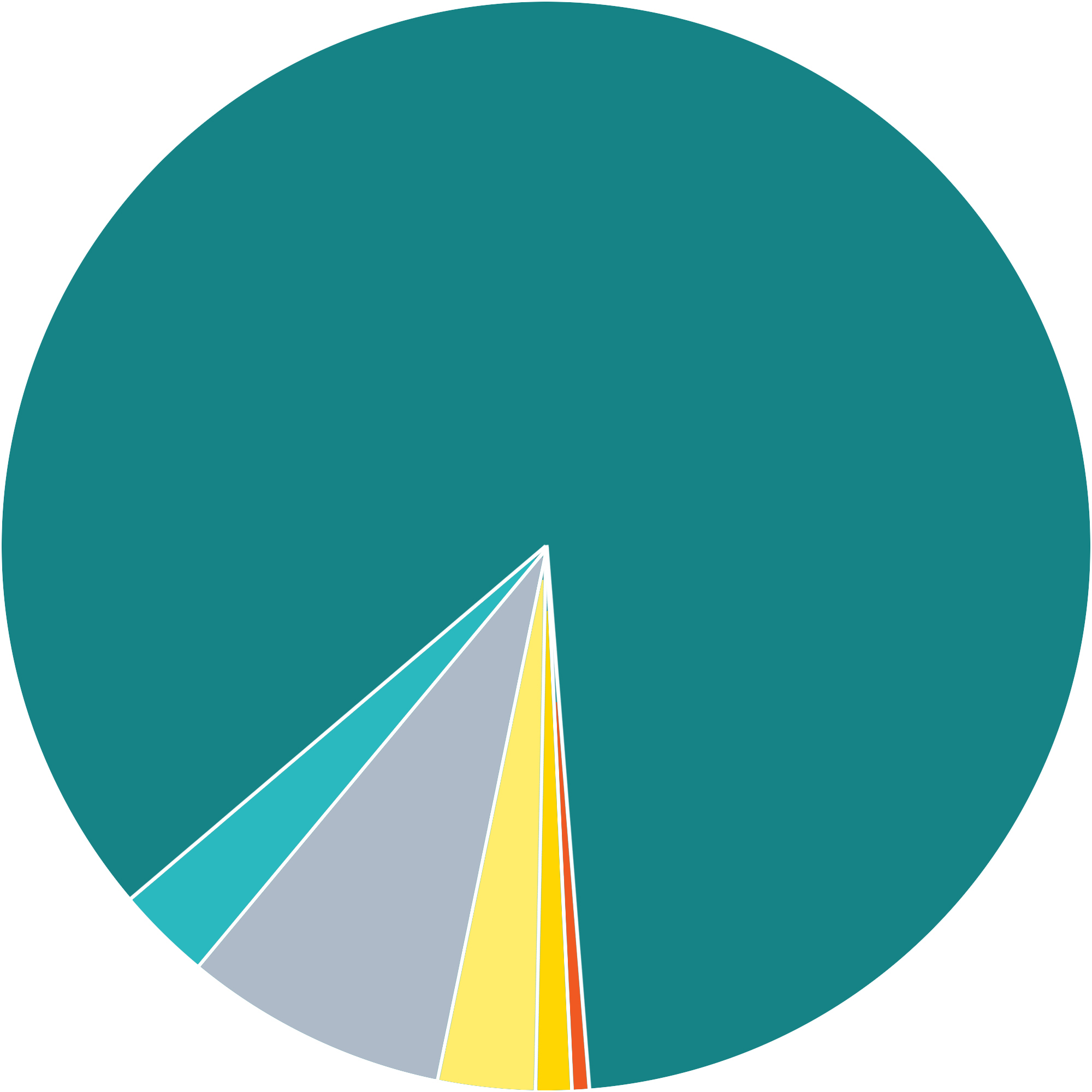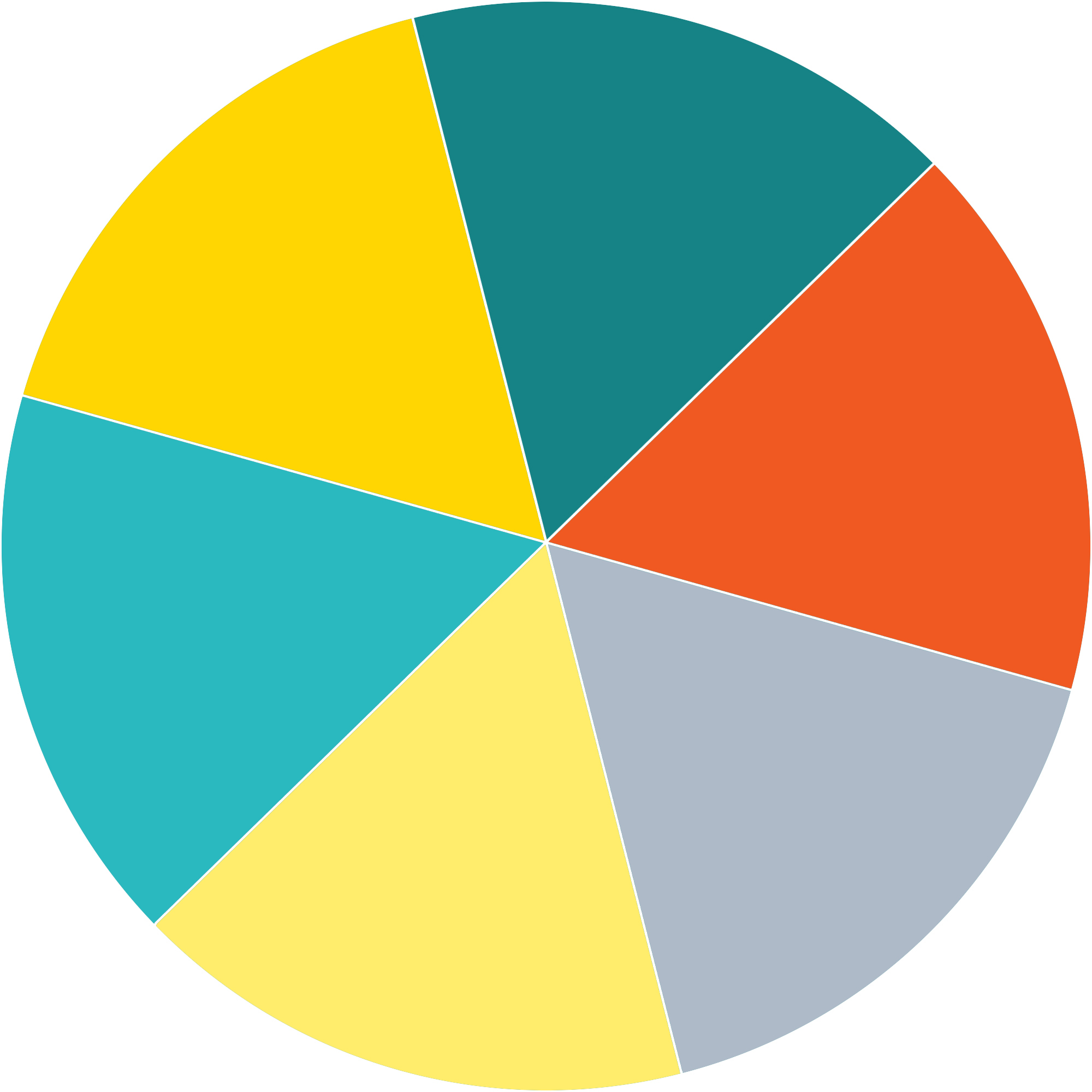The big bang of equity + systems change
By bringing fresh air to persistent challenges, we can get past feeling overwhelmed to make a better world together. That's what we do at THE OUTSIDE: we help collaborators get unstuck with pivotal events, capacity-building, and strategy that sparks significant change. Today, we explore the key ingredient to change that makes a difference: equity.
A conscious practice of equitable systems change often begins with a bang—an abrupt coming-to, a sad realization, a peak of failure or outcry or injustice. Something urgent enough to make us realize the effectiveness and relevance of our systems is diminishing exponentially. From higher up than we have before, we examine the way we live and realize we have more questions than answers.
It dawns on us: the systems governing much of our world are suddenly not as successful as some of us had presumed they should be. Today, this awareness is rapidly shifting:
Our concept of capitalism
How we instinctively build cities, products, or democracies
How we administer education, poverty relief, natural resources, or human rights
How we control, design, and deliver the modern world through our bureaucracies, organizations, and institutions
As society’s peripheral vision expands to acknowledge the innate value, presence, and contributions of more people, those with a legacy of privilege can see what marginalized communities have always seen—that ‘everything is fine’ applies to a shrinking minority. Everything is, quite plainly, not fine.
There’s so much vitriol in the public domain around social justice. But we don’t want to focus on the spectacle of yesteryear’s status quo losing its grip. We’d rather explore how all of us working for equity are training new muscles—in social, economic, identity, corporate, or legislative contexts—figuring out how to be better together, structuring our societies with more fairness.
Like any new creature, equity does not walk on its own only after it has reached its full-grown strength. It emerges as an intention, often still to-be-defined or fully understood. Ready or not, that intention wobbles upright. It moves and keeps moving, perfectly imperfect, learning and stumbling and iterating with every application.
Equity is not an end-game. It’s a practice. But unless we structure it in as a constant examination in the building and iterating of new systems, it will never be a part of our DNA. So what now?
How can we reimagine and rebuild our current society?
At what point do we let a broken system fail?
How can we protect vulnerable or disproportionately impacted people who might fall between cracks as we let go of what no longer works?
How might we include more people not only at the receiving end of these systems, but in the designing of them?
How can we build systems that truly serve and work for all?
As a practice—not a destination—equity begins with those questions. For the way forward, here are five never-forget touchstones and yield signs for leaders:
1.
The hare throws money at broken systems.
The tortoise turns toward inevitable change
with persistence.
Our systems are giving us the results they were intended for. The problem isn’t their design. The problem is that we—our communities, capabilities, awareness, and expectations—have changed while our systems have not.
Many of our assumptions and practices around work, resource sharing, education, and government cannot handle what’s coming down the pipe: more people, more diversity, and a burgeoning community consciousness around privilege and oppression.
As one system shows its cracks—our economy, for example—those cracks reverberate to other systems. Resources become strained. There’s less funding to go around. It’s a domino effect of two-hundred year-old designs gasping for breath.
Half of all students entering community college in Canada have already been in or completed a university program. It’s a worldwide trend—in Canada, the States, and England, a degree is no longer enough.
In North America, our efforts to end homelessness give many jurisdictions as high of a 70% return to homelessness within a year. Shelter is no longer enough.
As noted by the alarm bells of Nova Scotia’s Now or Never report, only one in four people will be in the workforce in 30 years. Within 25 years, two out of three people in Nova Scotia will be over 65. Similarly seen in other small or rural places around the world, our current economic system is no longer enough to sustain our youth. Our current care system is no longer enough to sustain our population of aging citizens.
In Nova Scotia as in so many other places, our current environment is a product of the 19th century. It fosters competition between municipalities and leads to inefficiencies in service delivery—especially as emerging demographic changes, economic shifts, government regulations, and aging infrastructure all negatively impact any jurisdiction’s ability to respond to their citizens’ needs. For the last 50 years, studies have identified that we need municipal modernization. Tinkering on the edges with band-aid adjustments will not attract the large-scale immigration, ideas, and talent we need to survive. Business-as-usual is no longer enough.
America’s healthcare costs are skyrocketing while U.S. life expectancy drops. In America and around the world, many societies struggle with unwieldy systems that are not only unsustainable, but that are underperforming. Throwing money at declining health outcomes is no longer enough.
Faced with increasingly urgent breaking points, many administrators follow the instinct to chase ‘the good old days’, resuscitating and ventilating instead of facing declining systems honestly, managing that death with dignity, and surfacing bold new alternatives.
In a delightful twist, the seeking-out of new approaches—done in the spirit of correction—tends to surface bold new alternatives that don’t only serve marginalized people better. Bold new alternatives serve everyone better.
But here’s something to remember: ‘the good old days’ are a myth. The ‘good old days’ provided decent outcomes for only a fraction of people. But in generations past, many didn’t mind that decent outcomes were reserved for the fortunate. In a delightful twist, however, the seeking-out of new approaches—done in the spirit of correction—tends to surface bold new alternatives that don’t only serve marginalized people better. Bold new alternatives serve everyone better.
In the middle of some of the most massive demographic shifts we’ve ever experienced (both globally and locally), not only is there the moral and business case against monocultural, homogenous views and policies. There is the strategic case. We do this or we die.
We can either demonstrate a lot of bluster (the hare) by throwing more and more money into broken systems—or we can face inevitable demographic shifts with honesty, humility, and persistence in the face of uncertainty (the tortoise). Numbers don’t lie. Change is happening, like it or not.
2.
PANIC SAYS:
We are in a dying system! #fightorflight
PRACTICE SAYS:
We are in a dying system! #opportunityknocks
As systems change strategists, our sessions these days are most often capped with a repeated sentiment: I know this seems crazy, but we can do this.
We—you—are not a group of change-makers. We are a lineage of them. It begins with recognizing deep-seeded imbalances, a willingness to try and address them, and the dispensing of the illusion that there is a pre-ordained way to try. Then, we expand our notion of shared work. Your current internal and external capacity, which may be undermined by the current system—may be limited. But as long as there’s willingness, there’s a way.
If we don’t shift our world toward greater equity, we are in imminent danger of rendering our planet, institutions, and politics uninhabitable. Municipal and global governments, economies, and environments are collapsing under the weight of fundamental inequities. Our resources, finances, and energies are misaligned and misdirected. But the most critical moment is the moment of dire diagnosis. Without that moment, we remain unable to do anything worthwhile. So let’s celebrate clarity and roll up sleeves like the small-town global community we are.
3.
DOGMA SAYS:
Are we moving the way I think we should move?
INTEGRITY SAYS:
Are we moving in the right direction?
What blocks change isn’t always consciously perpetrated. It’s the deep-seeded dogma of well-meaning individuals who cling to their own personal sense of a Right Way and a Wrong Way.
In the digital age, new information comes at us at a dizzying pace. Leaders find themselves in unchartered territory as power and influence shifts underfoot. As individuals seeking to change broken systems, we need to demonstrate a constant awareness of what serves and what doesn’t—especially when it comes to being aware of the people who comprise those systems, both in the delivery and receipt of them.
What do I understand about race, gender, or class difference?
What do I not understand?
Is my lack of understanding showing up as what I think are ‘justified’ objections or concerns?
What do I need to let go?
Regardless of our lived experience and how we identify (or how the world identifies us), there is always a way to shed attachments and lead change. By holding on to integrity but letting go of dogma—the insistence that our ‘right’ way is transferable to every other person, realm, sector, or level of society—we gain forward movement.
4.
TODAY SAYS, EXHAUSTEDLY:
Equity now!
YESTERDAY SHRUGS:
Equity eventually!
As defeated as ‘equity eventually!’ may sound, it’s a valuable baseline for managing action and projecting the future. The defeat of our lineage of individual change-makers imbues our efforts today.
Someday, we will join that lineage, with our hopes, dreams, sweat, and tears only partially realized. If we’re lucky. Will we even see a fully-reconciled, just and fair world? No. The more we achieve, the more elegant our definition of a shared world grows. The goal posts move as we move, and that’s a good thing. Progress is a practice. Not a destination.
The disharmony in today’s world is us on the verge of our next evolutionary survival-leap: as the only sentient, self-determined animal, equity is the only thing that will keep us from making ourselves extinct. It’s sacred and spiritual, but also essential.
We moved from water to land, lost our tails, recognized the developmental gift of opposable thumbs. The disharmony in today’s world is us on the verge of our next evolutionary survival-leap: as the only sentient, self-determined animal, equity is the only thing that will keep us from making ourselves extinct. It’s sacred and spiritual, but also essential. But its nature, as our understanding evolves, is such that equity should always be just beyond our grasp. Even as we place all of our efforts towards it.
Working for equity is the only viable way forward in an increasingly complex world. We engage in practice with a spirit of urgency while holding the long view that ‘it’ will take time. We can’t be demoralized by the lack of a finish line. It’s only just recently that it’s dawned on some of us that a patriarchal white society built to fuel capitalistic wealth cannot steward the planet.
This revelation hit home, finally, only because its effects are beginning to impact those people who have traditionally held all the power. These inherited imbalances were constructed over hundreds and thousands of years. It will take more than a few decades of resistance and rapidfire news cycles to reinvent and correct it. But we are on our way.
5.
THE STATUS QUO SAYS:
But… but... but...
COMPLEXITY SAYS:
<Nothing. It forces us together via shared consequences>
We are romantics. We like the drama of epic turning points. Big bangs. Except a big bang is not a resolution—it’s a dramatic state change from which we explode outwards towards exponentially greater complexity and chaos.
Think of some of our biggest big bangs. People of colour, for example, could point to the emancipation proclamation as a “big bang”. In 2018, there is more opportunity, justice, and regard for POC throughout the world than there was in 1963, let alone 1863. But for every Misty Copeland and Barack Obama, there are countless known and unknown Tamir Rices, Freddie Grays, Sandra Blands, and Philandro Castiles.
The spectrum of opportunity and justice is deeply conditional and contextual. Emancipation from slavery was the beginning— maybe the middle—and certainly not the end. The more progress we measure, the more exponential the complexity.
From the long game’s perspective, exponential complexity is a gift. It forces disparate groups into conversation.
As our ability to connect with each other accelerates, we change the whole potential of what’s possible. We are getting better and better at engaging across significant difference. We are getting better at being uncomfortable. This is a revelation that is good for the world.
Right now, the big revelations are newer to white males than they are to everyone else. Our systems were designed by them to encourage, protect, and enrich them—and them alone—for hundreds of years. They will feel most resistant and challenged by the discomfort of complexity. They’ve got the most catching-up to do. Having been at the centre, they are most newly-thrown into chaos. To the traditionally privileged, the status quo may be the only thing that feels like solid ground.
A practice of equity includes the historical lineage of the fight for balance as well as the resistance to it. Backwards steps are par for the course. Without friction, are we really changing hearts and minds?
Friction is heat—a force that human beings instinctually shrink from. Too few of us are comfortable with being vulnerable, accountable, or wrong. But heat is also a life force. Treated with care, the heat of friction can cure how we live together—not a ‘cure’ as the word refers to the eradication of disease, but the kind of curing that makes things solid, resilient, and fully-formed. Preservation, flavouring, osmosis. The kind of cure that requires patience.
Practicing equity is a non-gravitational circus act of establishing order and beauty after the bang—making new formations, new spectacles of colour and light. Trying and falling apart and trying again.
In high-tension times, fostering good ideas and helpful analysis is important— but this is not what’s (r)evolutionary. We’ve had consciousness for decades. In 2018, an entirely new process of inquiry and set of practices adds up to not only (r)evolutionary intentions, but (r)evolutionary change.
It’s not what we believe. It’s what—and how—we enact.







